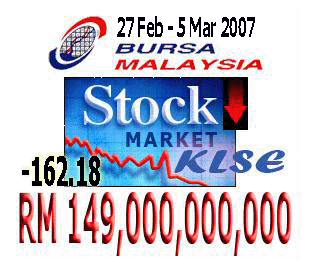
THE BLOODSUCKING BANKS
by Tgopal
Kota Damansara
Once upon a time, not too long ago, when the communication system in the world was at it’s infancy, we had so much problems dealing with banks.
Transferring of fund may take days or even weeks. To withdraw RM10, you may have to queue up for one hour or longer. If you had found a discrepancy in your bank statement, it may take months because the bank clerks/officers had to manually search for files which may be located in a store room hundreds of kilometers away.
But thanks to the latest communication technology now, almost all transactions performed at your fingertips in a matter of seconds, or at least we were convinced that way.
Let’s look at two scenarios and I leave it to the judgment of the readers on to what extent our banks are exploiting us, the customers without whom, they will never exist.
Way back in 1993, when I was still working with a local bank, a house cheque banked into a savings account will be cleared immediately but would be under one day float if it’s deposited into a current account. Still, if the current account holder had an ATM card, he could withdraw the fund after 5pm the same day.
Local cheques would be cleared in two days using KLACH system, in which, these cheques would be sent to the account holder’s branch so that the officers there could verify signature and other technical details. Simply put, if I bank in a local cheque at 3pm on Monday, I can withdraw the money on Tuesday after 5pm at any ATMs.
Fast forward to year 2007. If I bank in the same local cheque at 3pm on Monday, I can only withdraw the cash through ATM on Thursday morning, that this TWO full working days later! ( except for Public Bank, where you can withdraw the night before).
With so much of improvement in the information technology, aren’t we supposed get access to our fund earlier. Why is this working the other way around? Continue reading “The Blood-sucking banks?”

